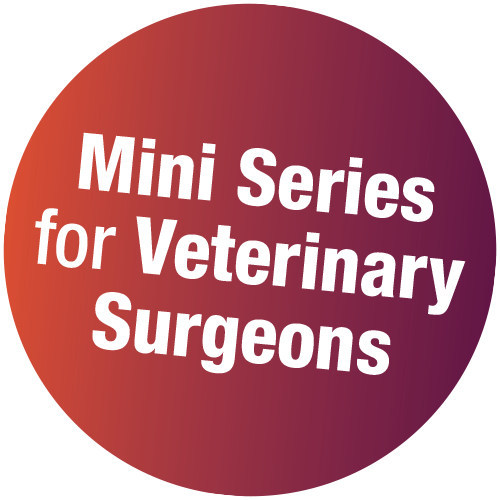MS195 – Anaesthetic Case Challenges
£447.00 (+VAT)
Join European Specialist in Veterinary Anaesthesia and Analgesia Alessandra Mathis for three 2-hour sessions. Includes 12 months access to all of your course materials.
Not sure what to do with that multi-parameter monitor? Worried about taking that dog in septic shock into theatre? You have given the patient an NSAID and buprenorphine but it is obvious it is still in pain? This anaesthetic case challenge mini series is for you!
With the help of clinical cases you will understand how to put together those numbers and curves you see on the monitor. Each parameter will be explained and its use put into practice.
The last thing one wants to do with patients in shock is to anaesthetise them, but sometimes this is necessary. May it be septic, hypovolaemic, cardiogenic or distributive shock, correct anaesthetic management is fundamental to survival. With the help of case scenarios, the delegates will learn how to deal with these challenging situations as best as possible.
Finally, you will learn how to manage pain when an opioid and an NSAID is not enough. Nowadays it is well known that multimodal analgesia is more effective than the traditional one or two drug regimes. The array of drugs that one can use to manage pain in the most challenging cases will be discussed, together with their indications and potential side effects.
- Join Alessandra Mathis DVM CertVA DipECVAA MRCVS for three 2-hour online sessions
- Comprehensive notes to downloaded
- Self-assessment quizzes to ‘release’ your 8 hours CPD certification (don’t worry, you can take them more than once if you don’t quite hit the mark first time)
- A whole year’s access to recorded sessions for reviewing key points
- Superb value for money – learn without travelling
- Watch the recordings on your iPad!
Programme
Session 1
Monitoring anaesthesia challenges – what is that screen trying to tell you?
What you’ll learn:
- Understanding each parameter on that monitor – ECG, pulse oximetry, capnography, blood pressure, temperature, end tidal agents. Some physics and some physiology will be explained to illustrate how monitors work and what we are measuring.
- Modern monitors – PI and PPV, what do these mean and how to use them in clinical practice
- Often there is more information in the curve than in the number. The various curves you see on the monitor will be explained
- Finally, you will learn to put all the information together for a deeper understanding of what is happening during the anaesthetic and to guide prompt intervention
Shock – How to deal with different types of shock in anaesthetised patients
What you’ll learn:
- How to best deal with a patient in septic shock? Including principles of fluid therapy and use of inotropes and pressors
- Hypovolaemic shock – what to do when you are faced with major blood loss in theatre. When are fluids enough or when should one reach for blood products?
- Cardiogenic shock – Choice of most cardiovascular sparing drugs and anaesthetic consideration for the patient with markedly depressed cardiac function
Pain – when an NSAID and an opioid are not enough
What you’ll learn:
- Brief overview of pain pathways and types of pain
- Concept of pre-emptive analgesia
- Non-opioid analgesics, their effects, side effects and uses, including local anaesthetic techniques
- Pain scores and the post-anaesthetic pain management
The price includes all 3 sessions, notes and quiz – 8 hours of CPD
*No traffic jams, accommodation hassles, pet or childcare, rota clashes, locum fees ……….. just great CPD and a valuable ongoing resource.
Course Feedback :
“This online Mini Series has given me better understanding of capnography and using multiparameter monitor”
“Great information regarding use of local anaesthetics and wound soakers. Use of ketamine especially as a premed combination”
“The content of the Mini Series will help me very much in my work in practice. It will give me confidence to use our capnograph, given confidence to try an epidural”



